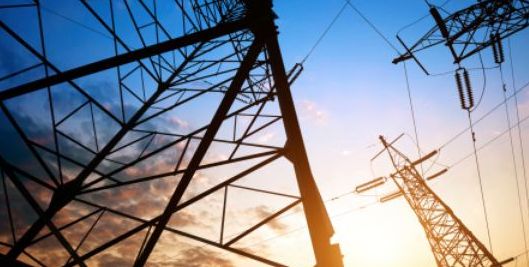SWEPCO files agreement with state regulators, pact will raise average electric bill by $8.54
by October 15, 2019 6:38 pm 763 views

Southwestern Electric Power Company has filed a settlement agreement that provides a net annual increase of $24.1 million in non-fuel base rates, which would hike the average bill for an Arkansas residential customer using 1,000 kilowatt-hours by 8.8%, or $8.54 per month, company officials said Tuesday (Oct. 15).
If the settlement request is approved by the Arkansas Public Service Commission (PSC), SWEPCO officials said the new rates would go into effect with the first billing cycle of January 2020. The Shreveport, La.-based subsidiary of American Electric Power (AEP) in Columbus, Ohio, had originally sought a net annual increase of $45.6 million, plus $12 million for additional vegetation management.
“We appreciate the careful consideration of our rate request, and we believe that all parties have worked toward an agreement that is fair for our customers and the company,” said Malcolm Smoak, SWEPCO president and chief operating officer. “We are committed to high quality customer service, managing our costs and investing in the electric system to provide reliable and safe power for the customers and communities we serve in Arkansas.”
A settlement hearing is scheduled for Oct. 21 at the PSC headquarters in Little Rock. Public comment hearings are scheduled for Oct. 24 in Ashdown, Ark., and Oct. 29 in Fayetteville, Ark. Along with SWEPCO, parties to the unanimous settlement agreement are APSC General Staff, Attorney General of Arkansas, Board of Trustees of the University of Arkansas, Walmart Inc., Western Arkansas Large Energy Consumers and Sierra Club.
Under the settlement, $28.9 million for costs recovered through separate charges, or riders, on customers’ bills will be moved into base rates. The existing costs include additional power plant environmental controls completed between 2013 and 2016 to meet federal mandates and construction of the high-efficiency, combined-cycle Stall natural gas plant, completed in 2010.
Base rates refer to the costs of building, maintaining and operating SWEPCO’s electric system, including power plants, transmission and distribution lines and facilities to serve customers. Base rates do not include the fuel portion of the customer’s bill, which pays for fuel and purchased power and is a pass-through to customers with no profit to the company. The settlement agreement also includes approval of a formula rate plan for a five-year term.
“The formula rate plan, as provided by Arkansas law, better aligns the company’s rates with its costs on an annual basis, which promotes greater rate stability and reduces the potential for large rate swings associated with general rate cases,” Smoak said.
SWEPCO serves 536,300 customers in three states, including 119,800 in Arkansas. Last month, AEP announced it is cutting carbon dioxide emissions faster than anticipated and has revised its previous 2030 reduction target from 60% to 70% from 2000 levels. The utility giant also said it is confident it will cut carbon dioxide emissions by more than 80% from 2000 levels by 2050.
Companywide, AEP has said it will achieve future carbon dioxide emissions reductions through a variety of actions including investments in renewable generation, investments in transmission and distribution technologies to enhance efficiency, and expanded demand response and energy efficiency programs. AEP’s resource plans include adding more than 8,600 megawatts (MW) of new wind and solar generation by 2030.
The company is seeking regulatory approval to add 1,485 megawatts of new wind generation to serve customers in Arkansas, Louisiana, Oklahoma and Texas, and has already added 1,302 megawatts of contracted renewables to its portfolio this year. Between 2019 and 2023, the SWEPCO parent plans to invest approximately $2.2 billion in contracted renewables and renewables integrated with energy storage.
To enhance the efficiency and resiliency of the energy delivery system, AEP’s long-term strategy includes plans to invest approximately $25 billion over the next 5 years in its transmission and distribution systems. AEP said it has also factored future carbon regulations into the company’s evaluation of generation resource options for many years ahead. The company already has cut carbon dioxide emissions by 59% since 2000, officials said.
